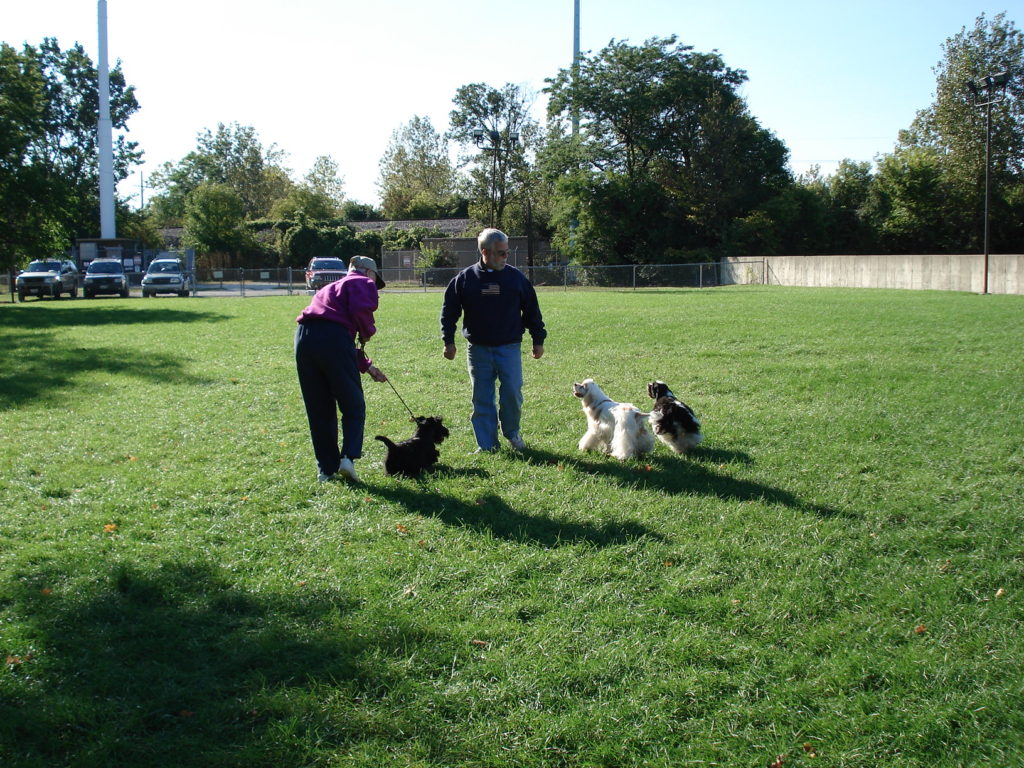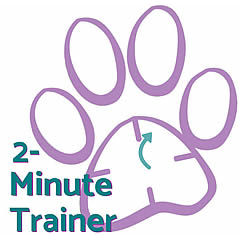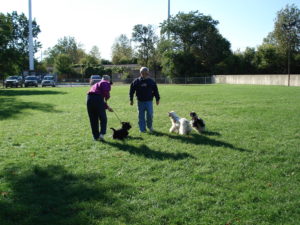Does your dog need “dog friends?” We see lots of new dog owners on our social media groups wanting to get together so their new dogs can play.
It’s not a bad idea, although there are some considerations to take into account. We’re not fans of “dog parks” for lots of reasons. The primary one is the lack of attention from other owners. They bring their dogs to the dog park, release them from the leash, and then socialize with other owners. All paying no attention to their dogs. Groups of dogs, especially if they don’t know each other well, tend to gang up on the new guy, or the smallest guy, or the most timid.

Small gatherings
Small groups of people who are acquainted, especially if they have the same breed of dog, are a better idea. Because different breeds were developed for different “jobs,” different breeds’ play styles can vary widely. We see it in our own home. The Boston Terriers have a very different (and much noisier) idea of play than the French Bulldog. The Bostons seem to think “chase, tackle, yell, repeat” is the way to go. When we had two French Bulldogs, they’d lie in a bed and “mouth wrestle.”
Together, they’ve developed a mash-up, which is loud, vigorous, and, in tight quarters, can take you out. It works for them.
Harmony at home
It’s important that all the dogs in a household get along. That circle should include extended “family” dogs. In ideal circumstances, if the dogs are healthy and sound, the best thing to do is let them figure it out for themselves. With careful monitoring at first, only gradually removing supervision over the course of time. Be sure all the dogs involved are able to “go away” when they’ve had enough. Puppies can be tiring, especially if you have an older or senior dog in the house.
Other buddies
The only dogs we require ours to be friends with are our other dogs. They see other dogs all the time – out on walks, at obedience class, at agility class, at rally class, at competitions for all of it. And we want our dogs to notice and ignore.
Not everyone has the same objective. It may be that you want your dog to play with other dogs. That’s fine, as long as your dog doesn’t try engaging with every dog you see when you’re out and about. Think about the circumstances when and where play with other dogs is appropriate, and try to confine it. When you’re out walking your dog, your pup should be able to notice another dog and still be able to continue calmly walking with you. (Check out Book 3: Let’s Go For a Walk. Games in there will show you how!)
If your dog sees another dog and immediately goes into “play with me!” mode, it’s time to work on some attention behaviors. Try to scan the area and take note of other dogs before your dog sees them. Ask for attention and reward heavily when you get it.
With consistency, rewards, and praise, you should start to see your dog “check in” with you before going into “play mode.” It’s up to you when and whether your dog gets to play with other dogs.
If you want your dog to have dog friends, control the relationship just as you would with a human toddler. The dogs have to play nice, no bullying allowed!

